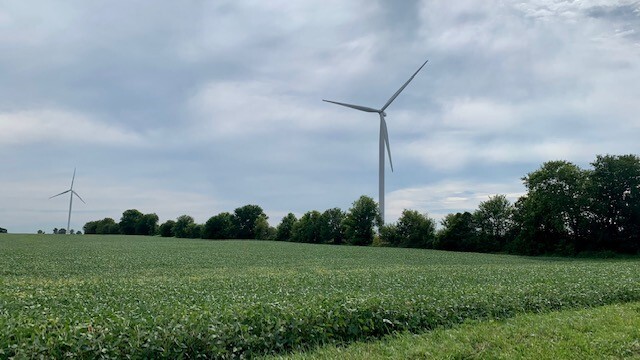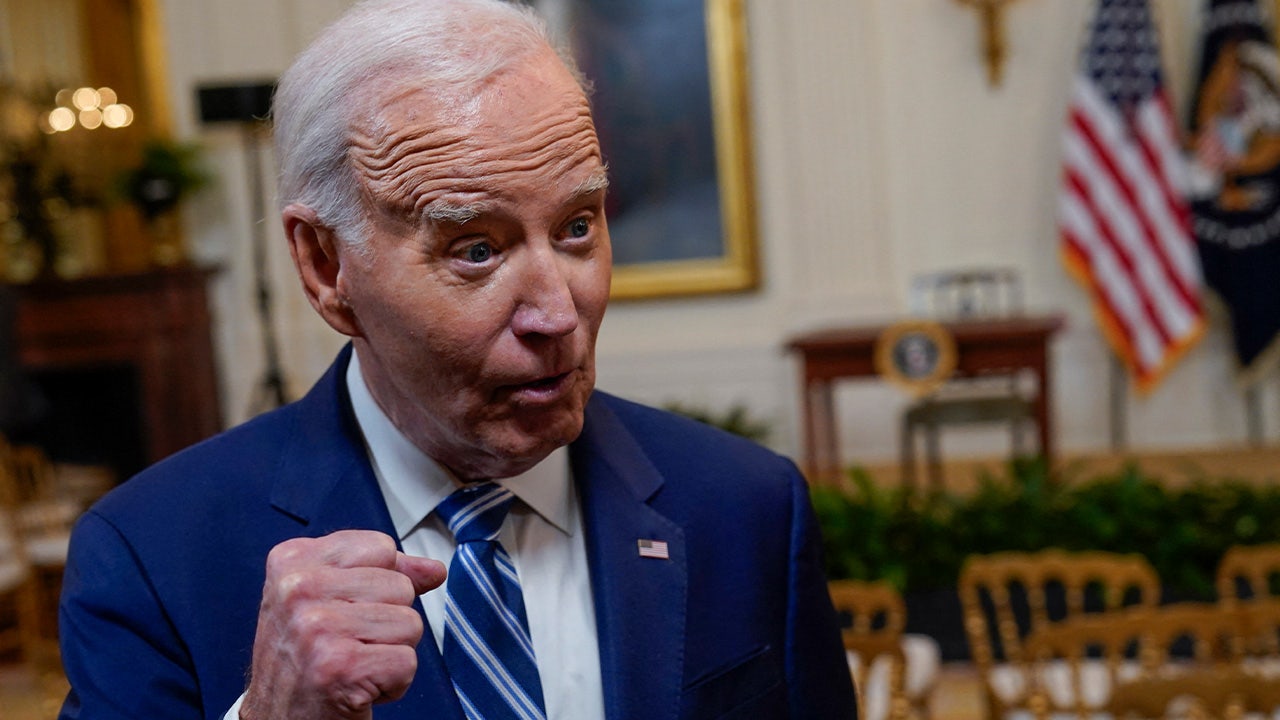Illinois
Book bans: Illinois poised to be first state to punish libraries that remove titles

Illinois Governor JB Pritzker is about sign a bill that would block the state’s community and public school libraries from receiving funding if they ban books — the first state in the nation to take such a stance against a wave of book banning in the U.S.
It’s the first time a monetary penalty would be imparted on institutions who go along with the book bans now on the rise in several pockets of the U.S., including in Florida under the leadership of presidential contender, Republican Gov. Ron DeSantis.
DeSantis, on the 2024 White House campaign stump last week, said he would look to make the book bans that took hold in Florida under his leadership, easier to pass in other states with social conservatives in power.
With some exceptions, calls for bans of titles ranging from African-American history to LGBTQ+ memoirs have typically been sought by just a few parents or other community members, yet these minorities often get libraries to respond.
“In Illinois, we don’t hide from the truth,” Pritzker, a Democrat, said in a statement when the legislation, House Bill 2789, was introduced earlier this year. “We embrace it and lead with it. Banning books is a devastating attempt to erase our history and the authentic history of many.”
Once enacted, the Illinois law takes effect on Jan. 1, 2024.
Book bans in U.S. public-sector schools increased by 28% in the first half of the 2022-23 academic year over the same period a year earlier, PEN America, a writers’ organization has reported, as it tracks such actions nationwide.
The American Library Association’s Chicago chapter said there were 67 attempts to ban books in Illinois in 2022, increasing from 41 the previous year. The public at large objected to more than 2,500 books last year across the country, according to the ALA, but objections don’t automatically lead to bans.
The Illinois penalty initiative was started by its Secretary of State Alexi Giannoulias, also a Democrat, whose office oversees the Illinois State Library and administers several grant programs for public and school libraries.
The bill requires that as a condition of qualifying for those grants, libraries adopt either a written policy prohibiting the practice of banning books or follows the American Library Association’s Library Bill of Rights, which includes a statement that “(m)aterials should not be proscribed or removed because of partisan or doctrinal disapproval.”
“This right-to-read legislation will help remove the pressure that librarians have had to endure from extremist groups like the Proud Boys who have targeted some of our libraries and their staff,” Giannoulias said during a news conference after the Senate vote. “This first-of-its-kind legislation is important because the concept of banning books contradicts the very essence of what our country stands for.”
Read: DeSantis promises to make America Florida. But Florida isn’t Florida anymore, critics say.
In June 2022, the Illinois Community High School District 99 school board came under pressure to remove the young-adult memoir “Gender Queer,” written as an illustrative graphic novel, from its library shelves. According to a Chicago Sun-Times article, pressure for removal came from a group of conservative parents as well as members of the far-right Proud Boys.
According to the American Library Association, “Gender Queer” was the most frequently challenged book in 2022, drawing 151 requests for its removal because of its focus on LGBTQ+ issues and what critics said was explicit sexual content.
Demonstrators who support banning books gathered during a protest outside of the Henry Ford Centennial Library in Dearborn, Mich., in 2022. Protests on both sides of the issue emerged after Dearborn Public Schools temporarily restricted access to seven books following a parent’s complaint about their content.
AFP via Getty Images
Earlier this month, a poem written for President Joe Biden’s inauguration was been placed on a restricted list at a South Florida elementary school after one parent’s complaint. In a Facebook post, poet Amanda Gorman vowed to fight back. Her poem, “The Hill We Climb,” was challenged by the parent of two students at Bob Graham Education Center in Miami Lakes, along with several books.
Read: Florida school library limits access to Amanda Gorman’s poem for Biden inauguration after parent complaint
Back in Illinois, Senate Republicans argued that the bill would put too much power in the hands of the ALA and that enshrining the group’s Library Bill of Rights into law would force local libraries to enact extreme policies, even beyond book bans.
Related: Montana bans people in drag from reading to kids at libraries, public schools
One member of the state’s lawmaking body, Republican Sen. Steve McClure, said that prohibiting libraries from banning books for any reason would mean they could not reject the donation of books from the public, including books that are purely hate speech or books offering directions on how to build a bomb, according to coverage of state politics on the Capitol News Illinois site.
Don’t miss: ‘Woke’ is being used to describe everything and nothing. What does it actually mean?
At his news conference, Giannoulias described those arguments as “ludicrous” and said the legislation does not deal with drag shows or dictate to librarians what materials they have to maintain. Separate of, but not completely exclusive from book bans, drag storytelling hours have come under greater scrutiny in some states.
Read: Drag queens fear Republican bills to restrict performances will hurt their livelihoods: ‘There’s nothing inherently sexual about drag’
“We’re not telling you what books to buy or not buy,” Giannoulias said. “What we’re saying is, if a book is in circulation as determined by the libraries and the librarians, that book cannot be banned because a group of individuals don’t like or want that book in their library. That’s what the legislation is all about.”

Illinois
Illinois State gets back to .500 in MVC play with win over Southern Illinois
(25News Now) – After starting out Missouri Valley play 0-2, Illinois State has rebounded with 2 straight wins vs Murray State, and an 85-54 win over Southern Illinois today.
The Redbirds were co-led in points by Jack Daugherty and Johnny Kinzinger with 17. Jordan Davis gets his first career double-double with 13 points and 10 rebounds.
They continue MVC play on Wednesday night at Evansville. Bradley will host Drake on Wednesday for a big early-season matchup.
You can watch 25News – any newscast, anywhere – streaming LIVE on 25NewsNow.com, our 25News mobile app, and on our WEEK 25News SmartTV streaming app. Learn more about how you can get connected to 25News streaming live news here.
Copyright 2025 WEEK. All rights reserved.
Illinois
Illinois lawmakers consider an array of measures in final days of lame-duck session
Illinois
How Donald Trump’s tariffs have – and could – affect Illinois agriculture – IPM Newsroom

CHAMPAIGN – Donald Trump sparked a trade war during his first administration when he imposed tariffs on China and other countries.
Many US business sectors felt the impact — including Illinois agriculture. And for his second term, Trump proposed various tariffs on the campaign trail and after his election, including a 60% tariff increase on Chinese imports and an additional 25% tariff on imports from Canada and Mexico.
JC Reitmeier says Trump’s past tariffs have not had a direct impact on him. Reitmeier is a 4th-generation corn and soybean farmer in Champaign County’s Stanton Township, which he describes as a heavily Republican area.
Reitmeier just finished a term as co-president of the Champaign County Active Senior Republicans. The group, which socializes and hosts guest speakers at its monthly meetings, celebrated Donald Trump’s election victory at a recent gathering at the Champaign Public Library.
Republicans lost all of their contested races in Champaign County government in 2024. But the Active Senior Republicans were happy about Trump’s imminent return to the White House.
Reitmeier said the new Trump administration will face a big challenge in helping farmers, notably when trying to bring up prices for his crops.
“A lot of the big buyers have gone to South America and other countries to get their corn and soybeans and we’re kind of in the dust again,” said Reitmeier. “We’re just going to have to get our exports built back up.”
How a US tariff on Chinese imports affected American soybean exports
Illinois was the number one state in the nation for producing soybeans in 2023, and number two for corn, according to annual figures from the U.S. Department of Agriculture.
A large share of those crops are sold to other countries, notably China, which is the largest buyer of US soybeans, and third largest buyer of its corn.
But when the Trump administration imposed tariffs on Chinese goods in 2018, China retaliated with tariffs on U-S crop exports, especially soybeans.
Joe Janzen is an assistant professor Agricultural and Consumer Economics agricultural economist at the University of Illinois.
He says the tariffs caused Chinese buyers to look elsewhere.
How the US and Brazil compete for the global soybean market
“So what we saw at that time, was prices for soybeans in the United States went down,” said Janzen. “Prices for soybeans in other parts of the world, and particularly Brazil, went up.”
Brazil surpassed the US in soybean exports to China about a decade ago, according to U of I ag economics researcher Joana Colussi. She says the US-China trade war only widened the gap.
And if new tariffs are imposed, and China continues to retaliate, Colussi says Brazil is ready to take even more of the US market share.
“If China would like to buy more soybeans from South America to replace the amount of soybeans that they would buy here in the US, given the numbers so far, or given the situation until now, South America will be able to match this demand,” said Colussi.
The tariff debate continues
While tariffs seem to have resulted in gains for some US industries, like steel and aluminum, a review by the Tax Foundation, a generally pro-tax cut think tank, concluded that tariffs under President’s Trump and Joe Biden have had a net negative impact on the U-S economy.
But Trump has repeatedly voiced his belief that “tariffs will make our country rich” and would be an effective tactic for working out bilateral trade deals with other countries.
“I always said, to me, tariffs, the most beautiful word in the dictionary,” said Trump at a December 16, 2024 news conference. “You go back and you look at the 1890s, 1880s, McKinley, and you take a look at tariffs, that was when we were at our proportionately, the richest.”
“I again, respectfully disagree with the incoming president,” is how a spokesman for the Illinois Farm Bureau reacts to Trump’s viewpoint.
Ryan Whitehouse is the Illinois Farm Bureau’s Director of National Legislation. He and other farm groups such as the American Soybean Association and the National Corn Growers Association say tariffs on imported goods will hurt everyday Americans.
“When you add cost to something, someone’s got to pay for that,” said Whitehouse, “and whether that be solely by the consumer or even a partial share with the producer and the manufacturer and the consumer, the consumer’s still paying more.”
Despite such arguments, farmer JC Reitmeier is still looking forward to a second term for Donald Trump. But he’s not enthusiastic about Trump’s promise to impose new tariffs.
“I’m not sure that tariffs are going to do it,” says Reitmeier. “Tariffs are a bad thing in my point of view.”
Reitmeier thinks the talk about tariffs is mostly hype — and he hopes it stays that way, at least when it comes to agricultural commodities and the crops he grows.
-

 Health1 week ago
Health1 week agoNew Year life lessons from country star: 'Never forget where you came from'
-
/cdn.vox-cdn.com/uploads/chorus_asset/file/24982514/Quest_3_dock.jpg)
/cdn.vox-cdn.com/uploads/chorus_asset/file/24982514/Quest_3_dock.jpg) Technology1 week ago
Technology1 week agoMeta’s ‘software update issue’ has been breaking Quest headsets for weeks
-

 Business5 days ago
Business5 days agoThese are the top 7 issues facing the struggling restaurant industry in 2025
-

 Culture5 days ago
Culture5 days agoThe 25 worst losses in college football history, including Baylor’s 2024 entry at Colorado
-

 Sports5 days ago
Sports5 days agoThe top out-of-contract players available as free transfers: Kimmich, De Bruyne, Van Dijk…
-

 Politics3 days ago
Politics3 days agoNew Orleans attacker had 'remote detonator' for explosives in French Quarter, Biden says
-

 Politics3 days ago
Politics3 days agoCarter's judicial picks reshaped the federal bench across the country
-

 Politics2 days ago
Politics2 days agoWho Are the Recipients of the Presidential Medal of Freedom?




:max_bytes(150000):strip_icc():focal(770x269:772x271)/abbie-stockard-miss-america-orlando-010625-3-1b845fcc45354518b6ad5346c88236d3.jpg)
:quality(70)/cloudfront-us-east-1.images.arcpublishing.com/adn/RQGAA7VDAJA7LDNXJLOHEDDWUU.jpg)










